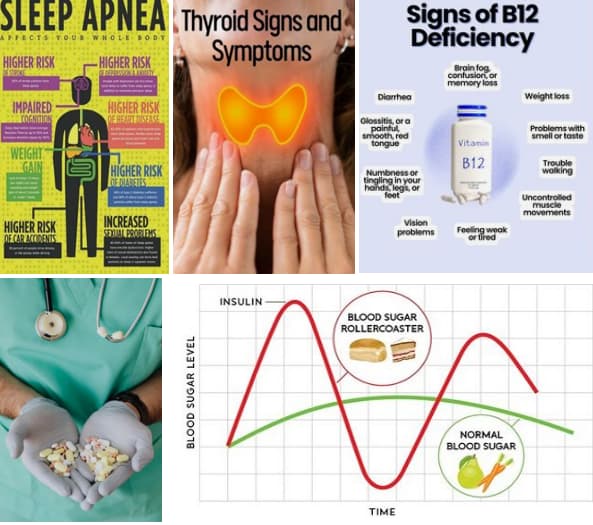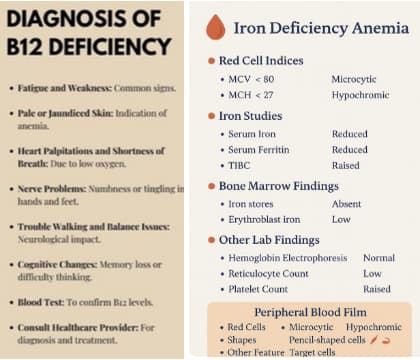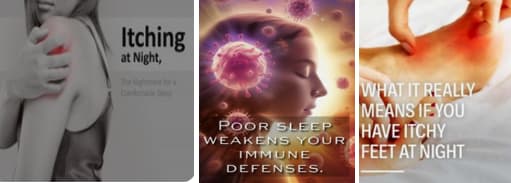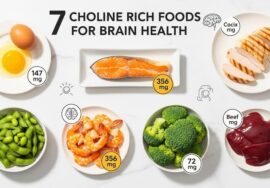Parasites aren’t the most common reason for being wiped out after 60 in the U.S., but in the right context—recent travel, untreated water, pets without deworming, steroid use—they can contribute to anemia, malabsorption, and sleep disruption. Targeted testing (not “cleanses”) is the smart path to answers.

Table of Contents
- Why “I’m always tired” after 60 deserves a plan
- How intestinal parasites drain energy
- Who in the U.S. is at higher risk?
- Symptoms that make parasites more likely
- The testing conversation to have (targeted, not random)
- Treatment (evidence-based > “cleanses”)
- Simple prevention that works (day-to-day)
- A quick “Should I test?” checklist
- Common myths—cleared up
- Q&A
- Concise answer bank
- Sources & helpful links
- Final word
Why “I’m always tired” after 60 deserves a plan
Plenty of non-parasite issues can sap energy—sleep apnea, thyroid shifts, iron or B12 deficiency, medications, mood, dehydration, or blood sugar swings. Still, certain infections can add to the load, especially when fatigue pairs with gut changes or new iron/B12 problems. See the sections below to decide if a targeted test is worth discussing. For a quick refresher on iron-related tiredness, see the Mayo overview of anemia and fatigue (Mayo Clinic). Mayo Clinic

How intestinal parasites drain energy
Three main pathways:
- Iron loss → anemia (you feel breathless, weak, heavy-limbed).

- Malabsorption (poor uptake of fat, vitamins like B12; bloating and loose/greasy stools).

- Sleep disruption & inflammation (night itching with pinworms; general immune activation).

Examples:
- Giardia can bring foul-smelling or greasy stools, gas, cramps, and rising fatigue—often after unsafe water or camping exposures (CDC—Giardia symptoms; Mayo—Giardia). CDCMayo Clinic

- Pinworm mostly causes nighttime anal itching, which wrecks sleep; some people have no other symptoms (CDC—Pinworm). CDC

Who in the U.S. is at higher risk?
- Recent travel (especially to places with untreated water/food handling risks). The CDC notes travelers’ diarrhea is common, and simple food rules don’t eliminate risk (CDC Yellow Book). CDC

- Campers/hikers using surface water without proper treatment (CDC—Food & water precautions). CDC

- Pet owners who skip routine deworming.

- People starting or on steroids or other immune-affecting meds (risk for strongyloides) (CDC—Strongyloides clinical overview). CDC

Symptoms that make parasites more likely
- Ongoing bloating, cramps, diarrhea, or greasy stools
- Unexplained iron-deficiency or low B12 on labs
- Night itching disturbing sleep (pinworm)
- Weight loss or appetite swings
Check giardiasis symptom patterns here: CDC—Giardia. CDC
The testing conversation to have (targeted, not random)
Ask your clinician about specific tests based on your story and exposures:
- Stool O&P exam (ova & parasites). The CDC recommends collecting three separate stool samples on different days to catch intermittent shedding (CDC—Diagnosis & testing; MedlinePlus—O&P test). CDCMedlinePlus
- Antigen/PCR for likely culprits (e.g., Giardia or Crypto). Crypto detection often needs multiple specimens across 3 days (CDC—Crypto testing). For Giardia, DFA is a gold-standard method, with PCR/antigen tests also used (CDC—Giardia testing for clinicians). CDC+1
- CBC with differential, ferritin/iron, B12/folate to evaluate anemia and low energy. See anemia basics at Mayo Clinic. Mayo Clinic
- If steroid use or past endemic exposure: Strongyloides serology (CDC—About Strongyloides). CDC
Treatment (evidence-based > “cleanses”)
When a parasite is confirmed, clinicians prescribe organism-specific medication (e.g., metronidazole/tinidazole for giardiasis; ivermectin is first-line for strongyloidiasis; albendazole is an alternative). U.S. dosing references: CDC—Strongyloides clinical care. Avoid self-treating—drug interactions and wrong dosing are real concerns. CDC
Simple prevention that works (day-to-day)
- Water: filter/boil when uncertain; campers and travelers should follow CDC guidance (CDC Yellow Book—water safety). CDC
- Produce: wash well; avoid cross-contamination (CDC food safety hub; produce handling tips in plain language: CDC Food Safety).
- Pets: keep routine vet-guided deworming and pick up waste promptly.
- Hygiene: handwashing before meals, after yard work, and after handling litter.
A quick “Should I test?” checklist
Consider bringing up stool and blood testing if you’ve had 2+ of the following for >2–3 weeks:
- New or worsening fatigue
- GI changes (diarrhea, gas, cramps, greasy stools)
- Low iron or B12 on labs
- Night itching that disturbs sleep
- Risky exposure (travel, untreated water, soil/pet contact)
Common myths—cleared up
- “Everyone needs a parasite cleanse.” Not in the U.S. Test first; treat what’s found.
- “One negative stool means I’m fine.” Many organisms require serial or antigen/PCR testing. (CDC—Parasitic testing). CDC
- “Pinworms explain all my fatigue.” They mainly disturb sleep via nighttime itching—fixable with treatment (CDC—Pinworm diagnosis). CDC
Q&A
- Can parasites cause chronic tiredness after 60?
Yes—mostly by anemia, malabsorption, or sleep disruption. They’re less common than apnea, thyroid problems, or meds in U.S. seniors. See Mayo—Anemia & fatigue. Mayo Clinic - What parasite most often pairs fatigue with diarrhea?
Giardia, especially after untreated water exposure. Symptoms often include greasy stools and gas (CDC—Giardia symptoms). CDC - How long should I wait before testing?
If fatigue plus GI symptoms last beyond 2–3 weeks (or sooner with red flags), ask for stool and blood tests. Guidance on serial testing: CDC. CDC - Which stool tests actually help?
O&P x3, plus antigen/PCR when Giardia or Crypto is suspected (CDC—Giardia testing; CDC—Crypto testing). CDC+1 - Could pinworms be the reason I’m exhausted?
They can keep you up at night—that alone worsens fatigue. Typical sign is night itching (CDC—Pinworm). CDC - I’m about to start steroids—anything special?
Ask about Strongyloides screening; steroids can trigger severe disease in previously infected people (CDC—Strongyloides overview). CDC - Best first labs for unexplained fatigue?
CBC, ferritin/iron, B12/folate, and TSH. See anemia basics at Mayo Clinic. Mayo Clinic - What meds treat parasites?
Depends on the organism. Example: ivermectin first-line for strongyloidiasis; albendazole is an alternative (CDC—Strongyloides clinical care). CDC - Do I need a cleanse or detox?
No. Use clinician-guided therapy once an organism is identified. See CDC—Parasitic testing. CDC - How do I lower my risk on trips?
Follow food & water precautions, and remember basic rules aren’t foolproof (CDC Yellow Book). CDC - Can Crypto be missed on one test?
Yes—multiple specimens over 3 days improve detection (CDC—Crypto testing). CDC - What if all parasite tests are negative?
Circle back to non-parasite causes (apnea, thyroid, meds, mood, dehydration, glucose issues).
Concise answer bank
- Main causes of unexplained fatigue after 60 (U.S.): more often sleep apnea, thyroid issues, anemia, meds; parasites are contextual contributors. (Mayo—Anemia) Mayo Clinic
- When to suspect parasites: fatigue plus chronic diarrhea/bloating, greasy stools, new iron/B12 deficiency, recent risky exposure. (CDC—Giardia) CDC
- Best first tests: stool O&P x3; add antigen/PCR for Giardia/Crypto; CBC, ferritin, B12. (CDC—Parasitic testing) CDC
- Treatment: organism-specific prescription meds (e.g., ivermectin for strongyloides). (CDC—Strongyloides care) CDC
- Prevention: safe water/produce, hand hygiene, pet deworming, travel precautions. (CDC—Food & water) CDC
Sources & helpful links
- Giardiasis—symptoms & testing: CDC CDC | CDC—Testing (clinicians) CDC | Mayo Clinic Mayo Clinic
- Pinworm—about & diagnosis: CDC—About CDC | CDC—Diagnosing CDC
- Parasitic testing basics: CDC—Testing & diagnosis CDC | MedlinePlus—O&P test MedlinePlus
- Cryptosporidium—testing: CDC—Crypto testing CDC
- Strongyloides—overview & treatment: CDC—About CDC | CDC—Clinical care CDC
- Anemia & fatigue: Mayo Clinic—Anemia Mayo Clinic
- Travel & water safety: CDC Yellow Book—Travelers’ diarrhea CDC | CDC—Food & water precautions CDC
Final word
Fatigue isn’t something to “push through.” Use the checklist above, take stock of your exposures, and have a short, focused conversation with your clinician about the right tests. That’s how you move from guesswork to getting your energy back.








